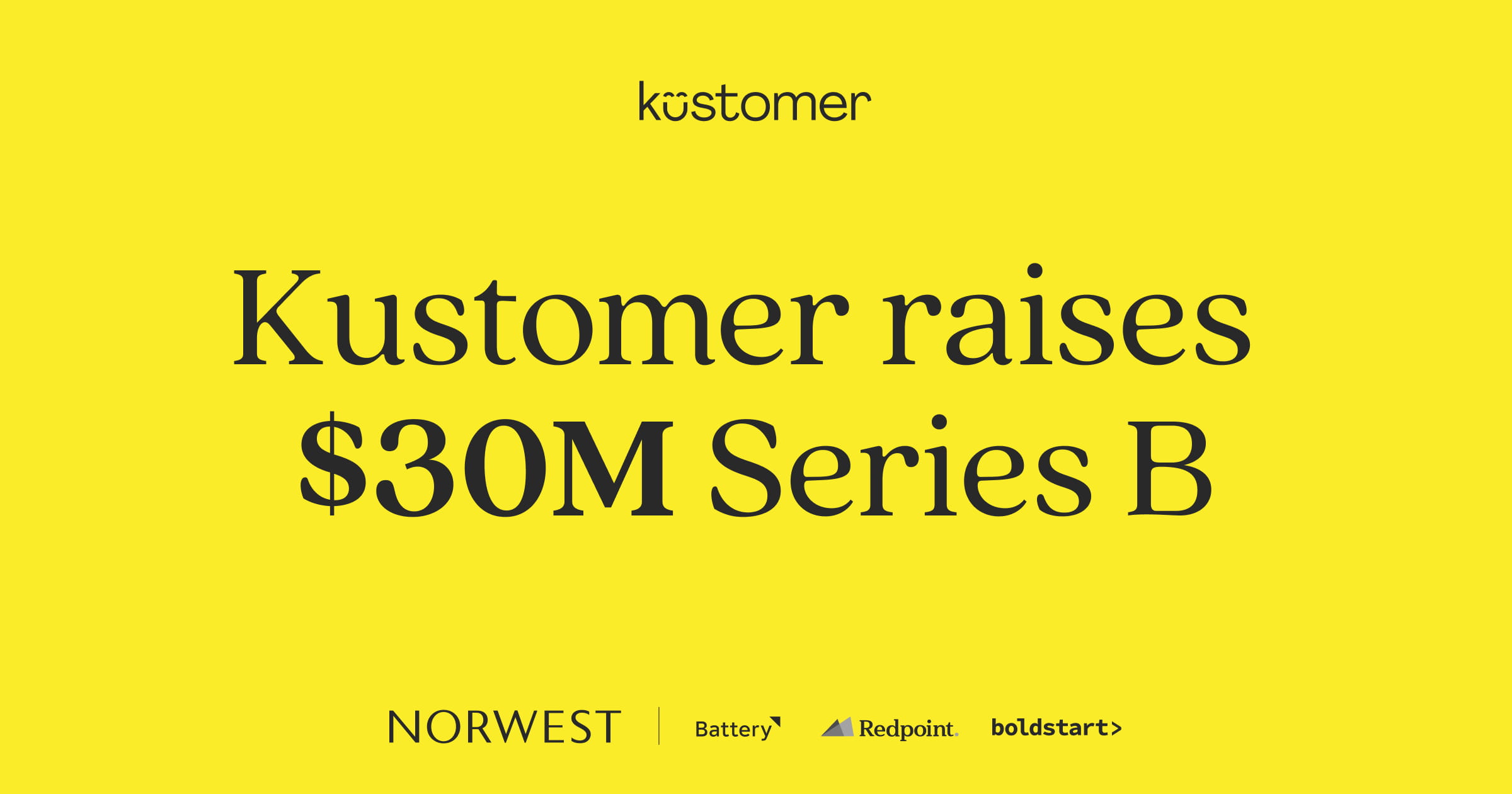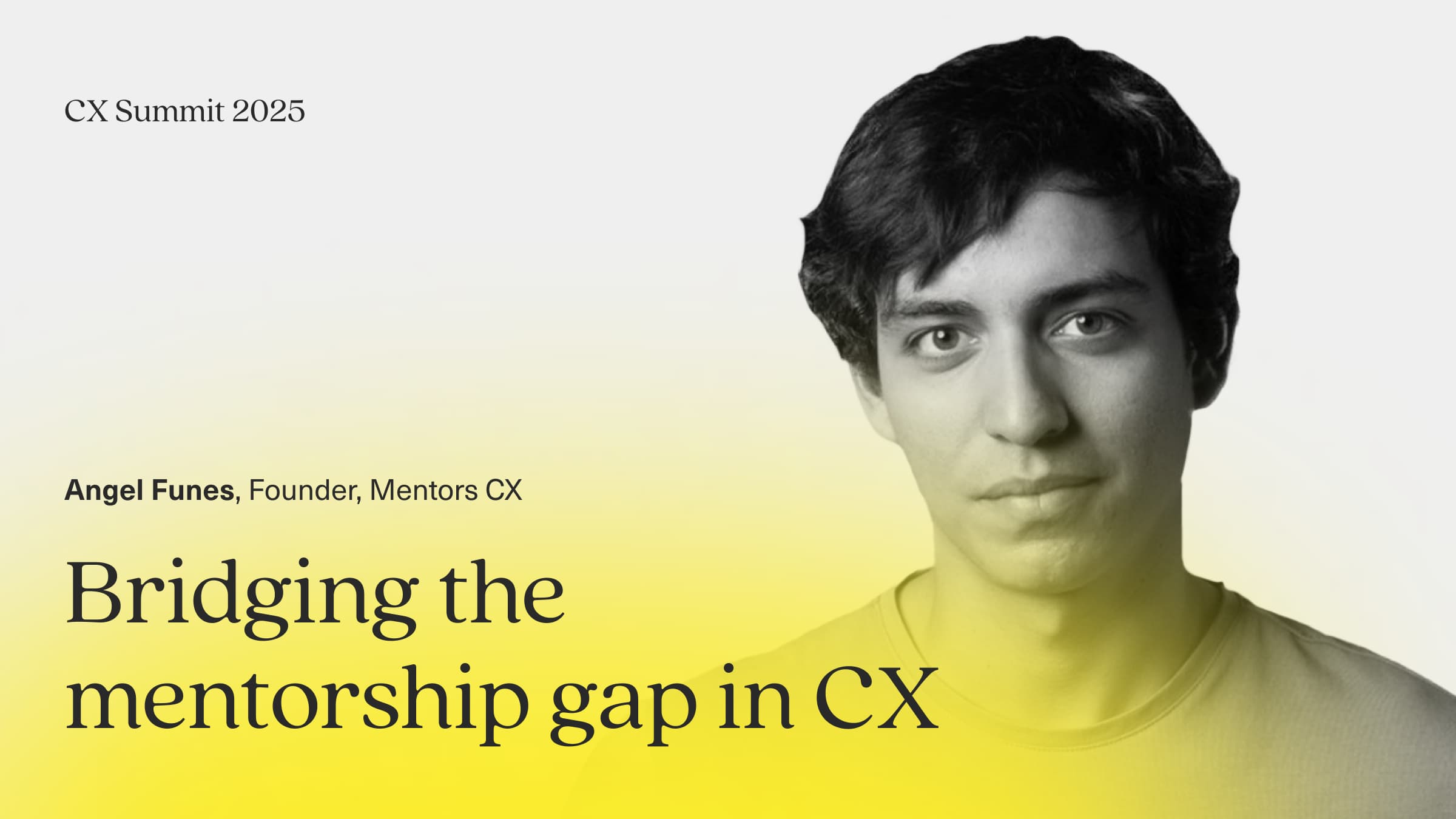Angel Funes is a CX lifer, starting his career at 17 in a traditional call center. From there, he moved into leadership roles in different parts of the CX world, and eventually into marketing. Now, he’s Head of Marketing at Horatio, a business process outsourcing company that builds dedicated, high-performing customer support teams. Alongside that, he has been building a platform called Mentors CX for the past year and a half.
During the CX Summit, he discussed the importance of mentorship in the customer experience field. Let’s hear what he had to say:
This interview has been edited for clarity.
Gabe Larsen: That’s awesome. I love that. There’s so much change happening, and not everyone has the answers. A resource like this is huge. So let’s dig in: what do you think is the real cost of not having strong mentorship in CX?
Angel Funes: It’s a big one. CX is evolving so fast, especially with new technologies like generative AI. There’s no standard playbook. CX leaders are writing it as we speak.
Mentorship matters because it helps professionals navigate those changes and frame CX as a revenue driver, not just a cost center. There’s still this old perception of CX as “just support,” and it holds people back from making a strategic impact. Mentors can help you reframe your work, communicate it more effectively, and better connect it to business outcomes.
Gabe Larsen: That’s a huge point. Communicating CX’s value to leadership is still such a challenge. What are some common misconceptions you see about mentorship, both for mentors and mentees?
Angel Funes: One misconception is that mentorship has to be broad or long-term. In reality, it can be very specific and tactical. You might just need help with a particular skill or tool. and that’s totally fine.
On our platform, you can book sessions for a specific topic or even commit to a short series of calls. We’re also building a feature for ongoing mentorship so if you really click with someone, you can build a more consistent, structured relationship.
For mentors, the misconception is that it has to be a massive time commitment. But even 30 minutes a week can make a huge difference. I mentor people myself, and it’s super rewarding. Sometimes just sharing your journey and experience can have a big impact.
Gabe Larsen: That’s such a great way to think about it—short, focused conversations that still make a difference. What are some of the most common themes that come up in those conversations?
Angel Funes: A big one is career growth—how to move from one role to the next. People often want to know how others navigated their own paths. I used to be a filmmaker, and some mentees are curious about how I transitioned those creative skills into marketing and CX. So it’s personal. It’s not just about how to set up an automation, it’s about understanding how to grow and use your unique background in a meaningful way.
Gabe Larsen: Yeah, seeing someone else’s path makes it feel more achievable. Let’s talk access. A lot of people might not even know mentorship platforms like yours exist. How do emerging CX professionals get started with finding a mentor?
Angel Funes: First, look around your own company. Who do you admire? Reach out and ask if they’d be open to mentoring you. I used to do that all the time. Just reach out, schedule something weekly or monthly, and build from there.
And then, of course, MentorCX is designed for that very purpose. It offers access to a wider range of people across different industries, which helps you get diverse perspectives. We’re even offering free memberships to people watching this, so if you’re interested, message me on LinkedIn and I’ll hook you up.
Gabe Larsen: Love that. What about those on the other side, more experienced CX pros who want to give back but don’t know where to start?
Angel Funes: If someone in your company asks you to be a mentor, say yes. Just be open. You can also apply to be a mentor on our platform or simply post on LinkedIn letting people know you’re available. Sometimes just reminding people they’re not alone can go a long way.
Gabe Larsen: Totally. Sometimes we forget how valuable just being available can be. Alright, as we wrap up, you’ve got a unique perspective from marketing, CX, and scaling teams at Horatio. What advice would you leave with the audience, especially CX leaders trying to navigate all the change and pressure happening right now?
Angel Funes: Just remember: you’re not alone. The world is changing, and we’re all going through it together. Reach out to people you’ve met at conferences, former teammates, anyone whose path resonates with you.
Ask questions, talk it out, and don’t be afraid to lean on your network. People are more willing to help than you might think. You don’t have to do this alone.
Gabe Larsen: That’s great advice. Budgets are tight, teams are stretched, and it’s easy to feel isolated. But there are people who’ve been through it and want to help. Whether it’s networking, mentorship, or just having a quick call, sometimes that’s all it takes.
Closing thoughts
Customer experience leaders are navigating rapid change and mentorship is more valuable than ever. As CX continues to evolve beyond traditional support, leaders must learn to communicate impact, align with revenue, and grow their careers intentionally. Whether inside your organization or through platforms like MentorCX, building mentor-mentee relationships helps unlock strategic thinking and personal growth. Even small conversations can have big outcomes.
Remember: you’re not alone. Lean on your community, ask for help, and keep learning from those who’ve been there.
Looking to stay connected to a customer experience community? Make sure you’re getting our weekly Insights newsletter to get the latest news and takes on all things CX. Subscribe today!




